
Concern over Huntington’s patients ‘turned away’ from mental health support
Many people with Huntington’s disease are being turned away from traditional mental health support, a charity has claimed as it called for more to be done to help people with the condition. Some mental health services have told patients that they do not have the specialist care needed, leading to the Huntington’s Disease Association calling for better help and support for people living with the disease. Huntington’s disease is a condition that stops parts of the brain working properly over time and can lead to problems with movement, cognition (perception, awareness, thinking, judgment) and mental health. Most people with the inherited condition will start to show symptoms between the ages of 30 and 50 and it gradually gets worse for around 10 to 25 years until the person dies. During all this time, my mental health was worsening. I’d seen my uncle commit suicide a few years before after his diagnosis and him not receiving the correct support and I was at a similar point Daniel Johnston There is no cure for Huntington’s disease or any way to stop it getting worse. A small new poll of 105 people with the condition, shared with the PA news agency, found that 85% had attempted to access community mental health services. But among this group, 56% claimed they had been denied access to care, the Huntington’s Disease Association said. Daniel Johnston, from Horam, East Sussex, said his local mental health service “didn’t know” where to refer him. The 41-year-old father of two said: “When I tested positive for Huntington’s, there was no specific pathway from that point for any mental health support. “I was confused, upset and angry about the diagnosis. I didn’t, and still don’t, fully understand my feelings of confusion and anger. “I wasn’t referred to a professional psychologist or anyone who knows how to support someone with a life-changing diagnosis such as Huntington’s. “During all this time, my mental health was worsening. I’d seen my uncle commit suicide a few years before after his diagnosis and him not receiving the correct support and I was at a similar point. “It was only when I explained to my consultant in our six-monthly appointment earlier this year the extent of my thoughts that he contacted the crisis team for me, and they began a course of daily calls for two weeks. “From this point onwards it’s been getting better, but I feel so sad for others who slip through the net so easily. “It’s as if people get afraid when you mention Huntington’s and there’s confusion around treating Huntington’s and treating mental health. “I’m not surprised by the amount of people being denied access to mental health support services due to having Huntington’s – I have been one of those people and it’s really scary.” The charity said hurdles often occur for patients after they have been referred by their GP for mental health support. Local mental health teams have told patients that Huntington’s “doesn’t fall under the remit of what they’re able to provide treatment for”. The charity has launched a new campaign, Mindful of Huntington’s, to raise awareness of the cognitive impairment symptoms of the disease, and has called for greater access to mental health support. Cath Stanley, chief executive of the Huntington’s Disease Association, said: “Many people think of Huntington’s as a disease which impacts movement, but that is only half the story, and the non-physical symptoms are often overlooked. “At the Huntington’s Disease Association, we find people will most commonly be referred to mental health services due to cognitive symptoms such as irritability and aggression. “Throughout May, we will be focusing on these cognitive symptoms and the life-changing impact they can have. “The stark findings we’re announcing can’t be ignored – people are asking for much-needed mental health support, being turned away, and their health is deteriorating further. It is disappointing but not surprising to see that there’s still a lot of misunderstanding around Huntington’s.” To find out more visit: www.hda.org.uk Read More Charity boss speaks out over ‘traumatic’ encounter with royal aide Ukraine war’s heaviest fight rages in east - follow live Scottish first minister Yousaf calls cost of coronation ‘uncomfortable’ King Charles and other royals return to work after coronation Prince Harry’s ghostwriter opens up about harassment after ‘Spare’
2023-05-09 13:51

Why eastern Europe's grain producers face a perfect storm
By Anna Koper, Gergely Szakacs and Luiza Ilie WARSAW When global grain prices started falling last year after
2023-05-09 13:27

Bank of China’s 22% Stock Surge Prompts Unusual Trading Question
Chinese speculators have a new obsession: stocks of the nation’s state-owned enterprises. A rally in government-controlled banks is
2023-05-09 13:15
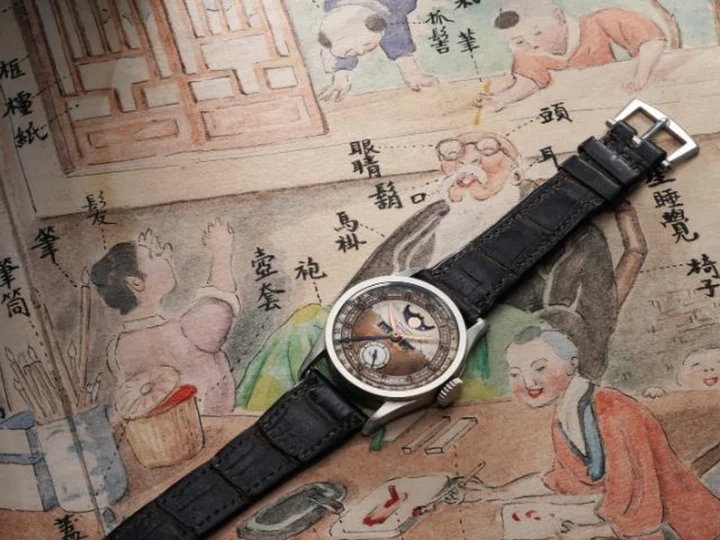
Last Chinese emperor's luxury watch expected to fetch $3 million
A wristwatch once owned by China's last emperor, Puyi, is expected to fetch over $3 million when it goes on sale in Hong Kong this month.
2023-05-09 12:53

City Veteran Blames London’s Decline on ‘Narrow British Way of Life’
Jan du Plessis is quick to offer a withering assessment of the City of London’s place in the
2023-05-09 12:29
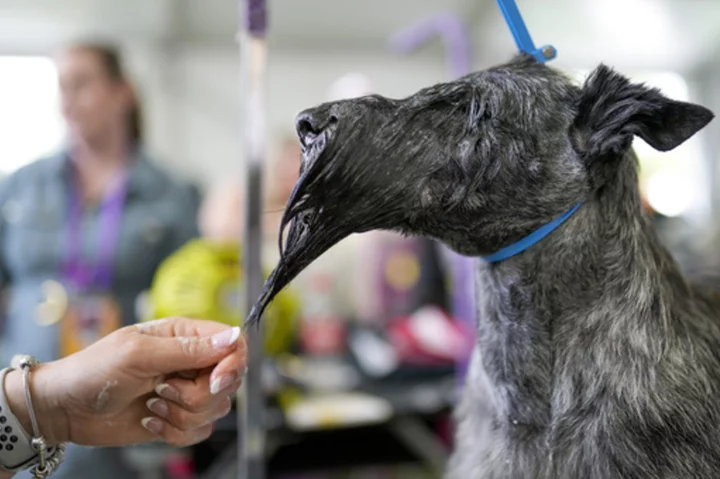
In dog show world, details obvious and subtle rule the day
Doe-eyed dachshunds, push-faced French bulldogs and other nonsporting breeds circle the hallowed rings at one of the world’s biggest dog shows
2023-05-09 12:26

Dubai DXB airport Q1 passenger traffic reaches 96% of pre-pandemic level
DUBAI Dubai's main airport registered a 55.8% increase in passenger traffic in the first quarter of this year
2023-05-09 11:58
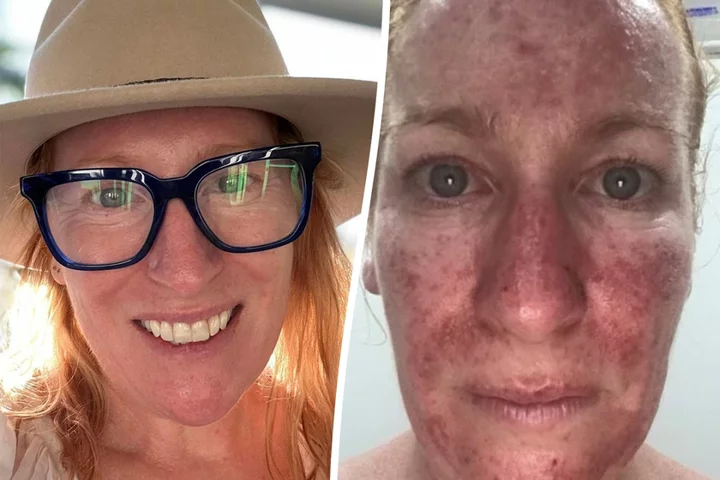
Mother left ‘looking like Freddy Krueger’ reveals first skin cancer warning sign
A woman who says skin cancer treatment has left her looking like Freddy Krueger is urging others to respect the sun. Melissa Lewis, 48, has been living with skin cancer for more than a decade. She has annual treatment which gives her skin a pockmarked look, which she has compared to that of Krueger, a fictional killer. Melissa, from Sydney, Australia, hopes the yearly procedure will keep her cancer at bay. But she wants to speak out to warn others of the harm sun exposure can do, before it’s too late. The mum-of-four, a former nurse, said: “When they said I have Bowen’s disease I thought that was it. “When I looked it up I was like, ‘Oh my god, I am never going to be free’. It is something I have to keep on top of. “I have treatment once a year. I hate it, it is really stressful as I know my skin will hurt. “I will have up to 14 days looking like Freddy Krueger, I can’t go out in public. “I look at my own kids when I have had the treatment and they find it hard to look at me. “I tell them that this is why you put sunscreen on, this is why you are careful.” Melissa first spotted a basal cell carcinoma - a sign of skin cancer - on her leg in 2011. She has since found them on her forehead, nose, chest and back and has lost count of how many have been removed. But in 2018, Melissa discovered what looked like a group of freckles lumped together in front of her ear. Thinking it was best to get it checked out, she paid a visit to her dermatologist. Melissa was then referred her to the Melanoma Institute in June 2018 - which confirmed she had a melanoma. “I was very lucky to have caught it when I did,” she said. “It did make me think that, ‘This is it’. The dread I experienced when I heard that word was really intense. “Having four kids thinking I am not going to be there with them was so overwhelming. “You automatically fast forward to the worst-case scenario.” A month after her diagnosis, Melissa had her melanoma removed. And, two months after her surgery, a biopsy revealed Melissa had Bowen’s disease - an early form of skin cancer. Melissa said: “I am never going to be free from this. “Basically if I don’t have my cancers removed, it can become a more serious invasive cancer.” Since she was diagnosed with Bowen’s syndrome, Melissa undergoes a yearly none-surgical cancer treatment - Photodynamic therapy. Photodynamic therapy is a treatment that involves light-sensitive medicine and a light source to destroy abnormal cells. Melissa said: “I hate it, I get really anxious before I know I am coming up for treatment. “It is really stressful as I know how much it hurts. “My future will be to repeat expensive Photodynamic therapy with CO2 laser every year and always six monthly full skin checks. “It will be the only way to prevent further surgery and keep non-melanoma skin cancers from becoming invasive cancer.” Read More Four bowel cancer symptoms that can show two years before diagnosis Mum put on life support after infected finger led to ‘devastating’ diagnosis 6 mouth cancer symptoms everyone should know Mother left ‘looking like Freddy Krueger’ reveals first skin cancer warning sign Mum put on life support after infected finger led to ‘devastating’ diagnosis 6 mouth cancer symptoms everyone should know
2023-05-09 11:54

Dubai main airport sees over 21.2M passengers in early 2023
Dubai International Airport had over 21.2 million passengers pass through its terminals in the first quarter of this year
2023-05-09 11:20
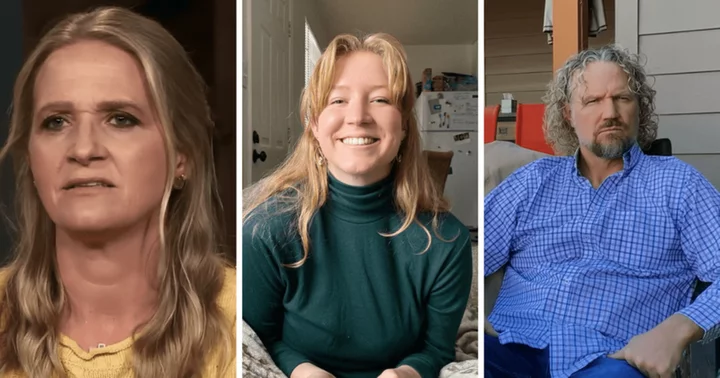
TLC star Gwendlyn Brown reveals her parents Kody and Christine Brown buried fetus in their backyard after 'scary' miscarriage
As she was watching Season 1 Episode 2 of 'Sister Wives', Gwendlyn Brown casually mentioned that her parents Kody and Christine had buried a fetus in their backyard
2023-05-09 09:23
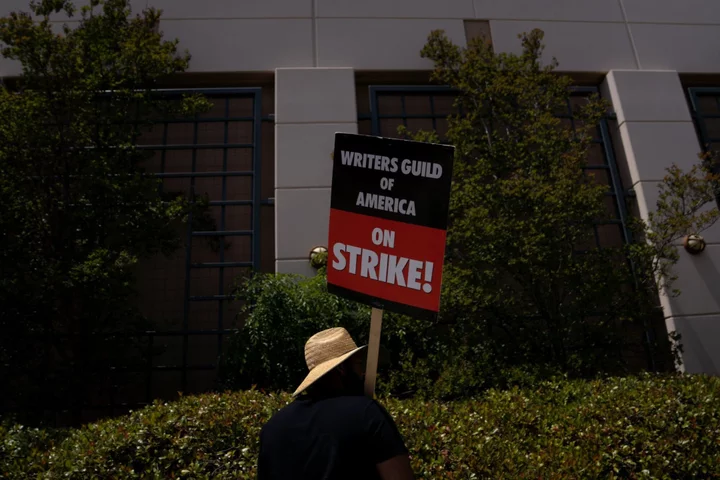
Biden Says Striking Hollywood Writers Deserve a ‘Fair Deal’
President Joe Biden said striking film and TV writers should receive a contract that properly pays them for
2023-05-09 09:21

Hollywood Landlord Hudson Pacific Slashes Dividend After Writers Strike
Hudson Pacific Properties Inc., a major landlord in Hollywood, withdrew its 2023 financial guidance and plans to slash
2023-05-09 07:45
